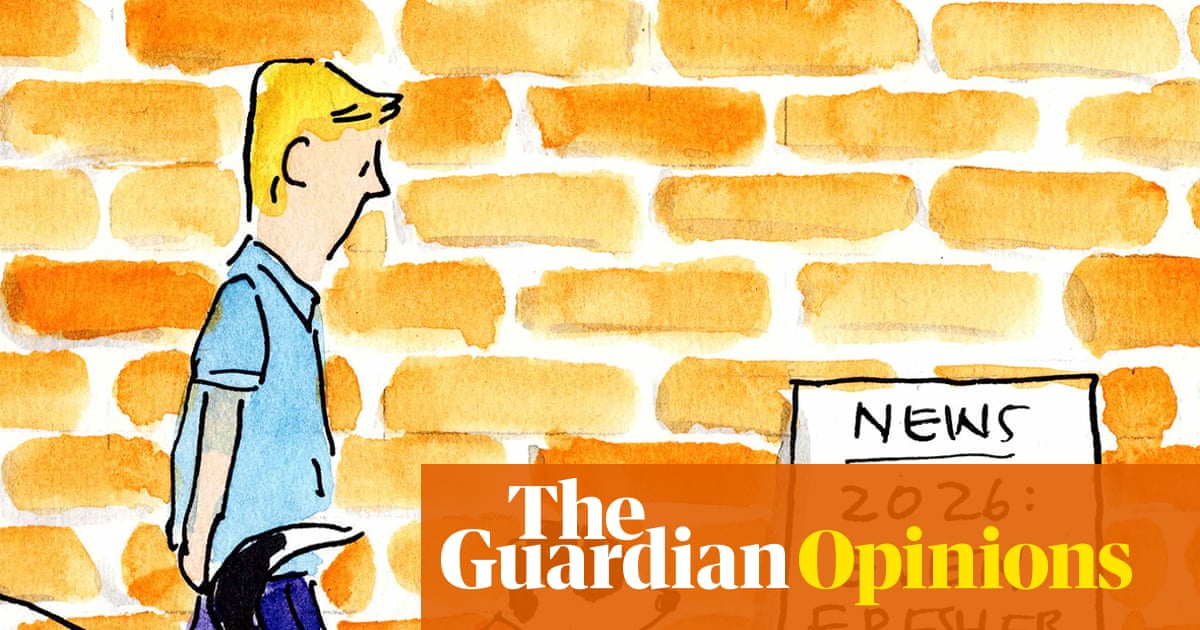A linguistic panic has swept America in recent months, corrupting our youth, annoying our teachers and leaving countless adults hopelessly confused. The question that has sparked the uproar: what, exactly, does it mean when an otherwise upstanding young person blurts out the phrase “six-seven”?
As you probably know by now if you read, listen to or watch major media outlets from across the political spectrum, the answer is: it doesn’t really mean anything.
The phrase appears to have its roots in a song by the Philadelphia rapper Skrilla, perhaps referring to 67th Street; from there, it was used in videos featuring the 6ft-7in NBA player LaMelo Ball, and Taylen Kinney, a 17-year-old basketball star, helped it go viral when he used the phrase to rank a drink from Starbucks. It’s often accompanied by upturned palms rising and falling. But the specifics don’t hugely matter. It’s just something people like to say – or did, before adults picked up on it. The same is true of words like “skibidi”, which Merriam-Webster calls a “nonsense internet term”. Then there are words whose meanings fluctuate, like “sigma”, which can be a compliment or part of an expression of confusion, as in “What the sigma?”
So if these words don’t have clear meanings, is there any point in saying them? Sociolinguists, who study the social aspects of language, say there certainly is – especially for young people. “This is just human development,” says Dr Nicole Holliday, an associate professor of linguistics at the University of California, Berkeley. “Part of the psychosocial development of young people is differentiating themselves from their community, from older people, and establishing their own identity.”
Dr Daria Bahtina, a sociolinguist and continuing lecturer at the University of California, Los Angeles, says the purpose of language isn’t just “to convey information, but to construct relationships, express attitudes, and signal belonging”.
So it’s not just trivial brain rot: terms like “six-seven”, “skibidi” and “Ohio”, she writes over email, “are fun precisely because they are exclusive and recognitional – the joy lies in getting it.” IYKYK.
Since it spreads through social media, “an environment optimized for constant novelty and reaction”, Bahtina writes, “it looks like ‘brain rot’ from the outside but actually follows the same sociolinguistic logic as every previous generation’s creative language play.” Remember when everyone was shouting “23 skidoo!” all the time? Probably not, because it peaked in 1905 and 1906, as Shane O’Neill recently wrote in the Washington Post. But it was a similarly malleable numerical phrase, with meanings ranging from catcalling to suggesting it was time to go.
More recently, as Holliday and others have pointed out, millennials were known to shout 1738, inspired by the 2014 Fetty Wap song Trap Queen. “It’s related to cognac, I think, but nobody knew that when they were in the club – 1738 was just a thing you said,” Holliday says. That community-building can also be regional: words such as “mane” in Memphis, Tennessee, and “jawn” in Philadelphia can refer to many things, but their clearest meaning is: “I’m from this city.”
But what is different about these kids today, Holliday and Bahtina agree, is the way they disseminate slang, and how it behaves as a result. Once, only parents and teachers would have been exposed to the language. But thanks to social media’s speed and public nature, older generations get wind of these phrases quickly and demand explanations. And once adults start writing killjoy articles like this one, the slang loses its power; it’s no longer a marker of an exclusive community of people who get it. That means new words and phrases must rush in to fill the void. “They have to keep outrunning us old people,” Holliday says.
The result is that, to their elders, gen alpha and gen Z can appear to be drowning in slang. “And then most of it is almost instantly ‘cringe’” – a word which itself has become cringe, Bahtina notes – because the language quickly goes mainstream. It all happens so fast that it can even pose a problem for kids themselves: when it’s hard to keep up, it can be easy to feel left out.
On the other hand, the fact that it’s all happening on a public forum can also create a bond, even between generations. When Holliday, the UCLA Berkeley linguistics professor, was running a marathon recently, some kids were holding a sign at the 6.7-mile mark. When she reached it, she yelled “six, seven” to their delight. “Just for a brief moment,” she says, “in our lonely, isolated, algorithm-driven world, I connected with those kids on something that we shared.”

 1 month ago
70
1 month ago
70

















































